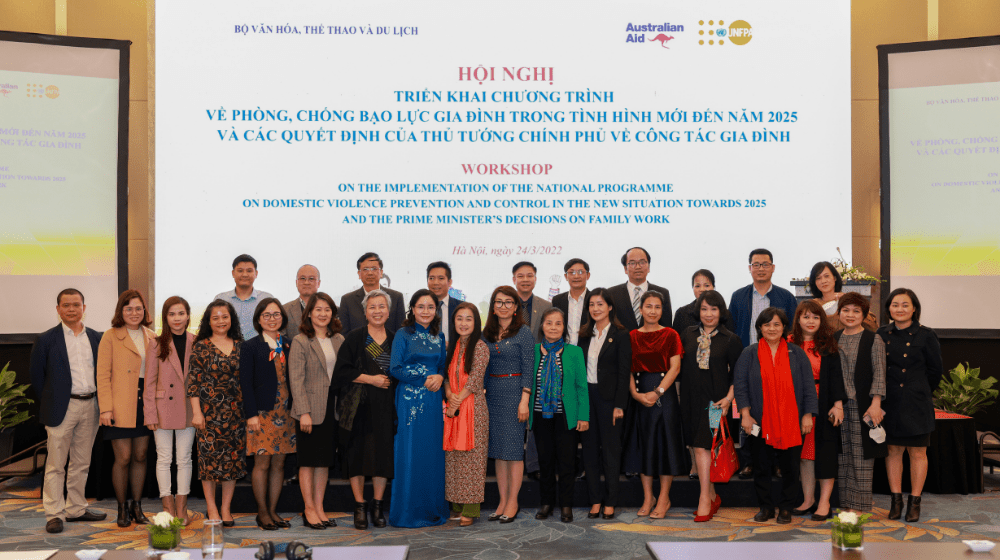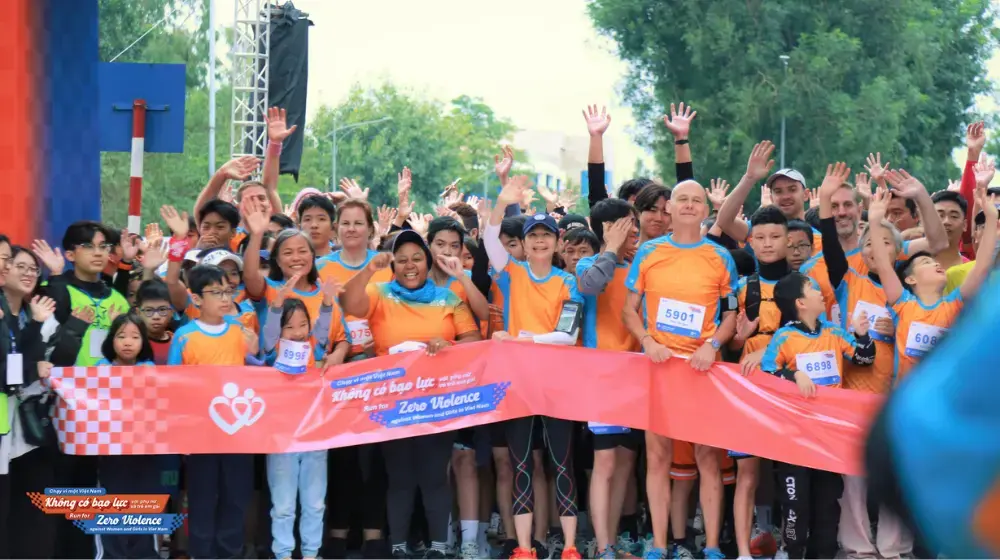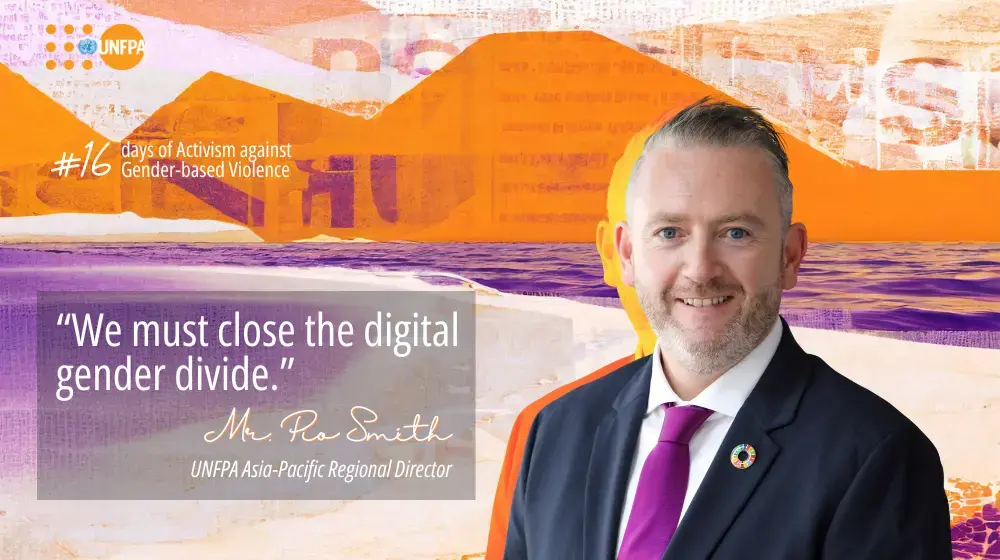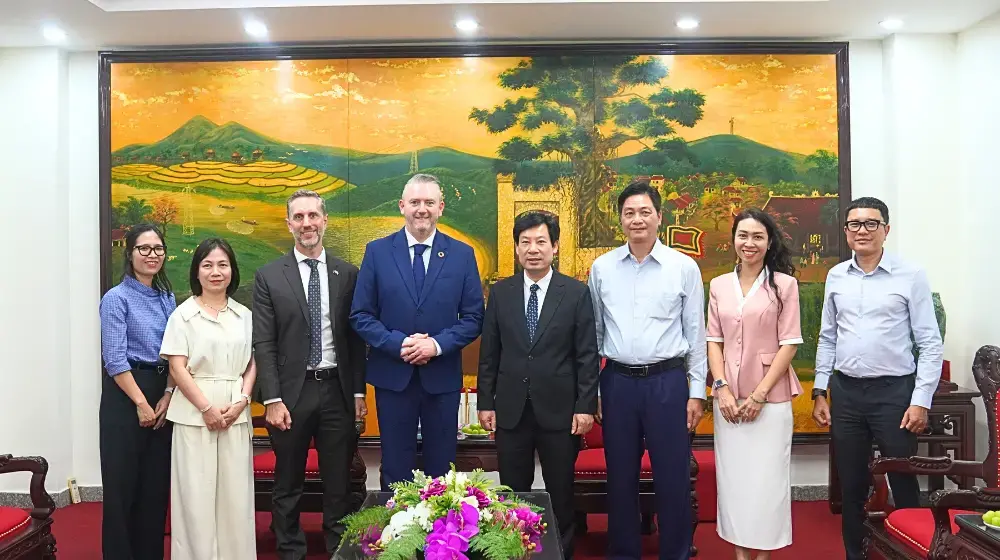Hanoi, 24 March 2022: The Government of Vietnam is determined to tackle domestic violence (DV) by prioritising the amendment of relevant laws and policies on domestic violence prevention and control, raising public awareness to change people’s behaviours.
The statement was reiterated at the workshop held in Hanoi today by the Ministry of Culture, Sports and Tourism in collaboration with the United Nations Population Fund (UNFPA) and funded by the Government of Australia under the Project: “Eliminating violence against women and children in 2021-2025”. The workshop discussed the implementation of the new National Programme on Domestic Violence Prevention and Control, approved by the Prime Minister in January 2022.
The workshop focused its discussion on key solutions in this National Programme. These solutions include the revision and finalisation of laws and policies on domestic violence prevention and control, strengthening leadership and coordination between ministries, sectors, and localities in achieving targets of the National Programme, and improved support systems for domestic violence survivors.
In his opening remarks, Chargé d’Affaires a.i. of Australian Embassy in Vietnam, Mr. Mark Tattersall said "No society is immune from domestic and family violence, and no country can afford to be passive. Not Australia, not Vietnam. Australia is committed to staying the course with the Government of Vietnam, and to support the realisation of the National Programme’s goal."
Meanwhile, the UNFPA Representative for Vietnam, Ms. Naomi Kitahara welcomed the Domestic Violence Prevention and Control Law which is been scheduled for endorsement in October 2022. In her opening remarks, Ms Kitahara said, “I am very proud of Vietnam reaching this level of engagement in trying to eliminate domestic violence in the country, and in the next five years, UNFPA is fully committed to continue supporting the Ministry of Culture, Sports and Tourism for the implementation of this National Programme to ensure that all women and children in Vietnam, including those most vulnerable, live a life free of violence.”
In this workshop, the approval of the Viet Nam Family Strategy by 2030 and the Programme on Family Ethics and Lifestyle Education by 2030 was also informed.
Attended the workshop were representatives from relevant Ministries, including the Ministries of Culture, Sports and Tourism; Public Security; and Labour, Invalids and Social Affairs, VFU, VWU, Government Office, MOJ, MOH, etc. Representatives from the local authorities of 63 provinces and cities, from the development partners, UN agencies and mass and social organisations were also present at the workshop.
Note to editors:
- The 2019 National Study on Violence against Women in Vietnam showed little change in terms of prevalence of violence against women since the 1st study in 2010. Findings of the study show that 62.9 percent of women in Vietnam experiencing at least one form of violence, including physical, economic, emotional, and controlling behaviour and sexual violence. 90.4 percent of GBV survivors did not seek help from authority and half of them never told anyone about the violence. It was also estimated that violence against women is costing Vietnam 1.81% of GDP in 2018. The 2019 National Study on Violence against Women in Vietnam was managed by the Ministry of Labour, Invalids and Social Affairs – MOLISA, in collaboration with the General Statistics Office, with technical and financial support from UNFPA and Australia’s Department of Foreign Affairs and Trade (DFAT).
- The key objectives of the National Programme on Domestic Violence Prevention and Control include: over 70% of people at risk of domestic violence are equipped with knowledge and skills in domestic violence response; 95% of detected domestic violence survivors to receive protection, legal aid, and healthcare; 95% of communes, wards, and townships to run and maintain the Domestic Violence Prevention and Control Model; and 90% of people directly engaged in domestic violence prevention and control to be provided with training in knowledge, skills, and professional practices on domestic violence prevention and control, among others
For further information, please contact:
- UNFPA Communications Officer: Ms. Dinh Thu Huong,
email: dhuong@unfpa.org; mobile: 0913301539
- Ministry of Culture, Sports and Tourism: Mr. Phạm Quốc Nhật,
email: quocnhat.vugiadinh@gmail.com; Mobile: 0988741639





